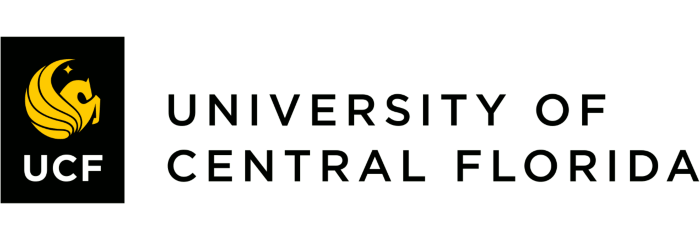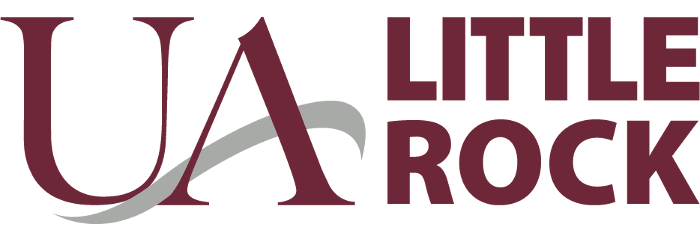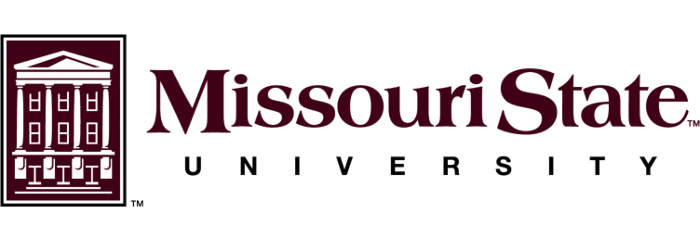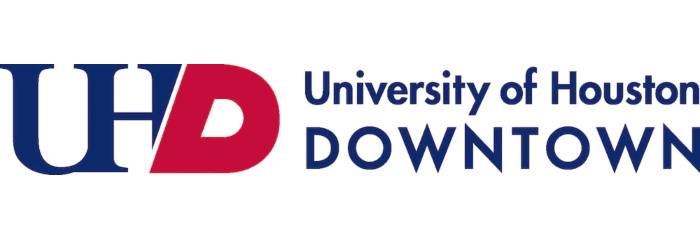2025 Best Online Writing Degrees
Our ranking of the best online writing degrees features accredited colleges graduating the highest number of students with this degree.
Key Takeaways:
- Southern New Hampshire University Online ranks #1 overall, with 580 graduates from its online BA Creative Writing & English.
- Old Dominion University leads for graduate earnings, with writing degree alums reporting a median salary of $53,896, just four years after graduating.
- DePaul University earns a 96% recommendation rate from students we've surveyed.
Read methodology for details about how we identify the best programs. We also spoke with professional writers and editors who shared first-hand insights on honing craft. Read their insights below our list and analysis.
2025 Best Online Writing Degrees
| Rank | School | Graduates | Annual Tuition | Median Salary | Recommendation |
|---|---|---|---|---|---|
| Southern New Hampshire University Online | 580 | $9,900 | $39,888 | 69% | |
| Full Sail University | 244 | $26,417 | $31,734 | 61% | |
| University of Maryland Global Campus | 221 | $14,970 | N/A | 71% | |
| Old Dominion University | 171 | $13,170 | $53,896 | 88% | |
| Liberty University | 146 | $11,700 | N/A | 75% | |
| Regent University Online | 21 | $10,880 | N/A | 83% | |
| University of Central Florida | 21 | $18,481 | N/A | 94% | |
| University of Colorado Denver | 16 | $18,210 | $46,400 | 91% | |
| University of Arkansas at Little Rock | 15 | $8,760 | N/A | 86% | |
| University of Wisconsin - Superior | 14 | $11,700 | N/A | 100% | |
| Missouri State University | 13 | $8,700 | $50,032 | 82% | |
| University of Houston - Downtown | 13 | $19,972 | N/A | 79% | |
| DePaul University | 8 | $15,600 | N/A | 96% | |
| Weber State University | 6 | $8,970 | $46,871 | 90% | |
| Park University | 3 | $17,250 | N/A | 84% |
2025 Best Online Writing Degrees - Program Details
- Graduates: 580
- Annual Tuition: $9,900
- Median Salary: $39,888
- Recommendation: 69%
Why we like them: SNHU earns the top spot for total writing degree graduates (580), a clear indicator of the trust that you and many others continue to place in their creative writing program. You can also benefit from publishing opportunities in The Penmen Review, the university’s dedicated online literary journal.
- Graduates: 244
- Annual Tuition: $26,417
- Median Salary: $31,734
- Recommendation: 61%
Why we like them: At Full Sail, Project LaunchBox™ equips you with a MacBook, Adobe Creative Cloud, Final Draft, and other professional software needed for a creative writing degree. If you enroll in September’s online cohort, you also receive an Apple iPad in your first month, reinforcing the university's commitment to digital creativity.
- Graduates: 221
- Annual Tuition: $14,970
- Median Salary: N/A
- Recommendation: 71%
Why we like them: UMGC program has a more interdisciplinary curriculum than creative writing alone, although that's a big part of it. It integrates literature and philosophy as well art, music, theater, and social justice studies, culminating in a capstone that equips you with a breadth of cultural, ethical, and critical thinking skills.
- Graduates: 171
- Annual Tuition: $13,170
- Median Salary: $53,896
- Recommendation: 88%
Why we like them: ODU's professional writing program has scheduled online class meetings that provide an added layer of interactivity and structure. This isn't creative writing as much as technical writing with coursework in business, communication, human resources, management, marketing, and public relations.
- Graduates: 146
- Annual Tuition: $11,700
- Median Salary: N/A
- Recommendation: 75%
Why we like them: Liberty's online BS in English and Writing with a Creative Writing concentration has 8-week terms. Courses are crafted and taught by industry-active faculty, including published authors and screenwriters, providing practical insights that directly bridge academic study and real-world writing careers.
- Graduates: 21
- Annual Tuition: $10,880
- Median Salary: N/A
- Recommendation: 83%
Why we like them: Regent offers a broad concentration structure within its B.A. in English, offering pathways in not just Writing but also Communication, Government, History (with both U.S. and European focuses), Biblical Studies, and a Self-Designed option, which is uncommon among online English degree programs. The program's curriculum is anchored in both classic and modern literary studies.
- Graduates: 21
- Annual Tuition: $18,481
- Median Salary: N/A
- Recommendation: 94%
Why we like them: UCF emphasizes producing civically engaged professional writers, an uncommon focus that blends civic engagement coursework with rhetorical strategies for real-world impact. The program’s faculty is nationally recognized, providing prestige and pedagogical innovation, and students benefit from dedicated internship and career resources.
- Graduates: 16
- Annual Tuition: $18,210
- Median Salary: $46,400
- Recommendation: 91%
Why we like them: CU Denver's online writing bachelor's program’s structure allows you to customize your academic journey through elective certificates such as Writing and Editing with AI, Technical and Professional Writing, Grant and Proposal Writing, and Teaching English as a Second Language.
- Graduates: 15
- Annual Tuition: $8,760
- Median Salary: N/A
- Recommendation: 86%
Why we like them: Compared to other institutions, UALR stands out by offering multiple pathways in the field, including a fully online Bachelor of Arts, a certificate of proficiency, and a minor in writing. The focus on integrating practical experiences — spanning editing, document design, and modern technology — equips you with immediate workforce-ready skills.
- Graduates: 14
- Annual Tuition: $11,700
- Median Salary: N/A
- Recommendation: 100%
Why we like them: UWS offers both a Writing Major and a Minor fully online. The program’s curriculum covers creative, academic, professional, and technical writing, allowing you to pursue multiple genres. Additionally, its integration of innovative microcredentials, such as the Non-Profit Communications and Management Certificate.
- Graduates: 13
- Annual Tuition: $8,700
- Median Salary: $50,032
- Recommendation: 82%
Why we like them: What sets MSU's online writing program apart is the requirement for a 135-hour internship embedded in the curriculum, giving you direct access to real-world training in professional writing environments.
- Graduates: 13
- Annual Tuition: $19,972
- Median Salary: N/A
- Recommendation: 79%
Why we like them: UHD’s online B.S. in Technical Communication requires writing portfolios and extensive internship opportunities. The degree foregrounds the development of advanced skills in designing content for both print and digital platforms, with a strong focus on responsive communication tailored to diverse audiences and industries.
- Graduates: 8
- Annual Tuition: $15,600
- Median Salary: N/A
- Recommendation: 96%
Why we like them: DePaul’s online Bachelor of Arts in Writing and Rhetoric has a dual focus on traditional rhetoric and contemporary digital storytelling, offering coursework like digital writing, visual rhetoric, and ghostwriting that few similar programs provide. It has an accelerated BA/MA in Writing and Rhetoric option as well.
- Graduates: 6
- Annual Tuition: $8,970
- Median Salary: $46,871
- Recommendation: 90%
Why we like them: WSU encourages you to contribute to Metaphor, the university's student-run literary journal that has been published since 1982, creating opportunities to develop editorial and publishing skills. WSU also offers immersive experiences such as open mic events, a visiting writers series, and engagement with the National Undergraduate Literary Conference.
- Graduates: 3
- Annual Tuition: $17,250
- Median Salary: N/A
- Recommendation: 84%
Why we like them: Park's English and Professional Writing B.A. merges traditional literary studies with professional and technical writing, offering you both creative and market-driven writing expertise. You can further individualize your professional track by pursuing a minor or certificate in Professional and Technical Writing.
Expert Voices: Building Skill, Confidence, and Career Paths in Online Writing Programs
Two experienced writing professionals — Rob Swystun, a ghostwriter and content strategist, and Kristina Lucia Pezza, an artist and author — share their perspectives on thriving in online writing programs. They talk about building consistent habits and seeking out meaningful feedback, among other topics, and their advice underscores the importance of practice, authenticity, and embracing the process.
Finding Your Voice Through Audience Connection

Best-Selling Author
"For writing programs, it is about what the participant brings to the table. It is crucial to absorb the information that has been give to you but this information needs to be put into practice so that the actions become a natural as opposed to a forced habit.
It is very important to gain experience beyond the classroom as putting your writing skills into practice is what is going to make you a writer. Like walking and other daily functions, writing requires certain muscles in our mind that need to be exercised on a regular basis to become natural.
It is important to share with others in these settings as we learn and grow so much from others.
By writing on a regular basis the individual not only expands their skill set and develops a style but also learns to write for an audience. Being able to write for an audience is a key skill as you want to share a piece of yourself but also write about a message that the audience is seeking.
I would advise young writers to:
-
Focus on the genre that they feel the most comfortable with. Writing is very personal and it is very crucial to be authentic to your strengths and what genre you identify with. Once confidence is built in the writer and their work, it is much easier to grow into other genres and explore those possibilities.
-
Focus on consistency. Create a routine where you are consistently writing. Next step is to set a time to release your work to an audience. You do not have to release every piece but create a routine to release your work regularly. It is completely normal write ten to twenty pieces and only share one or two of them with readers. Be proud of your first pieces for they are going to shape you into the writer you are destined to be.
Online courses can definitely capture the advantages of an in person course as long as there is interaction with both the instructor and other attendees. Online is a great place to start as it is a first step to building an audience.
The more you write and the more you share your work the better understanding you will receive on what readers are gravitating towards. When you share a piece of your writing, it also shifts the mindset from work in progress to a completed piece. The more pieces a writer completes the stronger their voice becomes and their work truly grows to new heights."
Mastering the Craft Through Honest Feedback

Ghostwriter and Fiction Author
"Online writing programs will have no discernible difference from in-person programs if they are organized and taught well. Writing, reviewing, and editing are all solitary activities, so you need not be in an in-person setting to do anything that you will be learning. Aside from not having the in-person camaraderie of classmates, you won't be missing anything with online programs.
Online writing programs will have no discernible difference from in-person programs if they are organized and taught well.
Regardless of what you are studying, it is imperative to gain experience beyond the classroom, and this includes writing. You don't even need to publish what you write, as long as you are going through the process. However, you will want to gain feedback from competent editors and competent writers. And, just as important, you will also need to learn how to spot incompetent editors and writers so you can ignore their advice.
[I] recommend that writing students perform their due diligence and research what writing is most in demand. Researching is an integral part of the writing process, anyway. In my travels around the writing corners of the internet, I often see calls for technical and grant writing. These are specialized types of writing, so you may have an easier time procuring jobs if you choose a specialized type of writing.
Remember that the true value of learning to write is in the processes:
That includes trying and failing.
That includes having your work ripped apart by a competent editor.
That includes reading, reading, and more reading.
That includes critiquing your fellow students' work.
That includes writing what you know, writing what you don't know, writing what interests you, and writing about things you couldn't care less about.
The value is in the process. If you use the easy button, you are doing yourself a massive disservice. Writing well is not supposed to be easy. If it was, anyone could do it. You want to get paid to write? Put in the work. Fail. Improve. Read. Edit. Revise. And write write write. This is how you do it."
EXPERT TIP
"Use your own blog, newsletter, Medium, LinkedIn, etc to publish your own work and send out as samples. If you can afford it, hire a professional editor. If you can't afford that, you and a fellow student can act as each other's editors."
Overview of a Bachelor's Degree in Writing
If you have a passion for writing and are interested in a career in communications, earning an online bachelor's degree in writing can help you develop your skill set and adapt your writing capabilities for a broad range of styles. An online writing degree is designed to provide students with a deep understanding of the written word. Students learn to effectively convey ideas, arguments, and narratives through various styles of writing. The program aims to develop students' creative, analytical, and technical writing skills, preparing them for careers in fields such as journalism, publishing, content creation, and technical writing.
Online degrees also offer a high level of flexibility, making it much easier to fit higher education into a busy schedule, especially for working adults or those with family responsibilities.
A bachelor's degree in writing can open a world of opportunities for students who have a creative streak and want to combine their writing skills with . It provides the tools needed to succeed in a variety of writing roles in today's digital age. Whether you're interested in creative, technical, or business writing, an online writing degree program can equip you with the skills you need to thrive in your writing career.
Degree Requirements
Most bachelor's degrees require around 120 credit hours to finish and are designed to be completed in four years for full-time students. Students who opt for part-time programs will take longer to graduate. Some online colleges also offer accelerated degree options which allow students to finish their degree sooner.
Online writing students will complete general education courses in areas such as math, science, and history, as well as major-specific courses and electives. To earn this degree, students must maintain a minimum GPA (usually around 2.0 or higher), and some programs may require a capstone project or a portfolio showcasing the student's best work.
Wondering if your online degree will be respected? Hear from experts on what recruiters and employers think about online degrees.
Common Courses
The core curriculum for an online writing degree includes classes designed to provide a comprehensive understanding of the different writing styles and techniques, allowing students to develop skills necessary for a broad range of different writing careers.
Some of the most common classes for writing majors are:
Creative Writing
While many people think creative writing only applies to fiction, writers can also bring creativity into the non-fiction and poetry spaces. In this class, students learn how to develop their voice, create compelling characters, and craft engaging narratives. (If this particularly interests you we also have a list of the most popular online creative writing degrees.)
Technical Writing
A cornerstone for those interested in an online technical writing degree, this course focuses on writing clear and concise documents such as manuals, reports, and proposals. Students learn to translate complex technical information into easily understandable text.
Business Writing
Written communication is critical in the business world. This course teaches students how to write effectively in a business context, including writing memos, business letters, and corporate reports. The emphasis is on clear, concise, and persuasive writing.
Digital Media
This class covers writing for various digital platforms, including websites, blogs, and social media. Students learn to adapt their writing style to different online audiences and to use SEO techniques to help readers find their content online.
Literary Analysis
One of the best ways to become a better writer is through reading other writers' work. This course helps students develop their analytical skills by studying various works of literature. Students learn to interpret, analyze, and critique literary works.
Research and Writing
This course focuses on academic research and writing skills. Students learn how to conduct research, cite sources accurately, and write research papers.
What Can You Do With a Bachelor's in Writing?
A bachelor's degree in writing can open up a range of opportunities for graduates. Some students continue their education, going on to graduate school or pursuing an internship. Others opt to enter the workforce after college, pursuing careers in marketing, communications, business, or education.
Further Education
Graduate programs in writing, literature, journalism, or related fields can deepen your understanding of the written word and its uses. Many students go on to earn their Master of Fine Arts in creative writing, poetry, or nonfiction writing, which will allow them to teach at the college level. Certificate programs can also offer focused instruction on specific types of writing, such as technical writing, creative writing, or business writing.
Internships are common in the writing world because it's difficult to get a job without writing samples, and having published work for your portfolio will make it easier for employers to assess your work. Internships also offer a hands-on way to gain experience in the field while building a professional network.
Writing Careers
Every industry in the modern world needs writers to craft memos, instructions, documents, marketing materials, speeches, video and audio scripts, and creative content. Here are some career paths you can pursue with a writing degree, with information from the :
Writers and Authors
Writers and authors create content for various types of media, including advertisements and marketing, blogs, books, magazines, and movie, play, and television scripts. They choose subjects that interest readers, write fiction or nonfiction scripts, biographies, and other formats, conduct research, and work with editors and clients to ensure the content meets their needs. Writers and authors are often self-employed or freelance workers, and are often able to work remotely.
Technical Writers
Technical writers write highly specialized content such as instruction manuals and training guides. They may focus in an area like information technology, engineering, or manufacturing. Technical writing tends to be less creative and more informational, and can be a good career option for those with strong analytical skills and attention to detail.
Editors
Editors play an essential role in making sure content is error-free and meets the needs of clients and their audience. Copy editors work on a variety of different types of content, including books, magazines and newspapers, blogs, websites, marketing materials, speeches, and technical documents. Managing editors typically work in the publishing industry, overseeing the content and production of books and magazines. They work with writers and fellow editors to ensure content adheres to the vision, guidelines, and goals of a publication. They also supervise staff, engage with advertisers, accept and reject pieces, and oversee daily operations.
Is an Online Writing Degree Worth It?
-
Skill Development: A degree in writing can help you refine your writing skills, learn to write in different styles and for different audiences, and become adept at crafting compelling narratives.
-
Transferable Skills: In addition to writing, you'll develop critical thinking, research, editing, and communication skills, which are valuable in many different careers.
-
Career Opportunities: A degree in writing can lead to a variety of careers, including roles as a writer, editor, technical writer, content strategist, marketer, and more. You could also use your writing skills in fields like law, business, education, or public relations.
-
Creativity and Self-Expression: For those who enjoy writing, a writing degree can provide an outlet for creativity and self-expression, allowing you to explore and develop your unique voice.
-
-
Career Stability: Writing careers can sometimes be less stable than other fields, with many writers working on a freelance basis or moving from project to project. As technology continues to advance, writers will need to stay on top of new skills such as SEO or using AI to aid their work to remain relevant.
-
Income: While there are certainly successful and high-earning writers, starting salaries in writing-related fields are often lower than other industries.
-
Job Market Competition: Depending on your specific career goals, the job market can be competitive, particularly for jobs like authors or journalists.
-
Limited Practical Experience: While many writing programs do offer opportunities for internships or real-world experience, some may focus more on theory and academic study, which may not fully prepare you for the practical aspects of a writing career.
Students should look for an accredited college or university that offers low tuition rates, has financial aid options, and has programs that will help them meet their professional goals to get the most out of their degree. Applying to scholarships and finding ways to save money in college will also help lower the cost of a degree to maximize the return on investment.
Wondering how to pay for your degree? Our student loan guide can help you cover the cost of college without borrowing more than you need.
FAQs About Online Bachelor's Degrees in Writing
How Long Does It Take To Get an Online Writing Degree?
An online bachelor's degree in writing usually takes around four years of full-time study to finish. However, some schools offer accelerated programs that allow students to finish in less time.
Can You Get a Writing Degree Online?
Many colleges and universities offer online bachelor's degrees in writing. These programs are designed to provide the same rigorous education as their on-campus counterparts, covering different writing styles and their practical uses.
Is an Online Writing Degree Hard?
How hard an online writing degree will be depends on each person's interests, strengths, and challenges as a student. Like any degree, it will require commitment and hard work. Students who struggle with writing and communications may find this degree more difficult than others. However, writing is a skill that can always be developed and improved upon with practice. Online students need to be self-motivated and disciplined, as online programs often require a significant amount of reading and writing assignments. The lack of in-person interaction can also make it harder for some students to learn, while others prefer the online environment.
What Can I Do With an Online Writing Degree?
Writing majors often work as writers, editors, content creators, or technical writers in a wide range of industries. Some choose to pursue further education such as a master's degree or writing-focused certificates. Others may use their writing skills in fields like marketing, public relations, or education.
Is an Online Writing Degree Beneficial?
An online writing degree can be highly beneficial, depending on your career goals. The skills you gain — such as critical thinking, research, creativity, and communication — are in high demand in many industries. The flexibility of online learning can also make it easier to balance your studies with other commitments, like work or family responsibilities.
Student Reviews of Online Writing Programs
Southern New Hampshire University's online program for a degree in Creative Writing with a concentration in fiction was perfect for me. As a single mother of two children in school, working full time and with a full time life outside of work, this program has been excellent. The advisers and teaching staff were helpful. Anything I asked was answered promptly. Financial aid was explained to me and was an expedient process. Graduation was beautiful and I flew from California to go. I would recommend... Read More
Review Date: 5/17/2015
Would Recommend: Yes
Helpful for Career: Yes
I love this new online college- If you are online and dissatisfied- look around! I was drowning at the old one- bored and miserable- the people- including professors-were only going for a piece of paper or paycheck. I just assumed online was like that everywhere! Not so! My new college has forums for each major and most students are really engaging in the DB's! The professor I have currently is actually READING our work and giving REAL feedback- after three years of misery, I am finally excited to... Read More
Review Date: 9/14/2014
Would Recommend: Yes
Helpful for Career: No
My school is a good fit for me as I could not find any online writing schools that were not specifically focused on journalism. I wanted a creative writing degree and it is difficult to find a school that focuses on this particular subject. I am elated that I found this school.
Yes, I would pursue the same degree as writing is a passion of mine and is very therapeutic as well since I am disable and cannot attend... Read More
Make sure you make yourself marketable and take a variety of courses.
Review Date: 7/14/2013
Would Recommend: Yes
Helpful for Career: No
If you aren't an independent learner, then you will not like this institution. I loved it! It was not easy but I am happy that I stuck in there. I transferred from another institution with years of military experience. Tesu is generous with transfers but I still had to complete a lot of math and writing. I was discouraged when I failed my chem course but the mentor was very patient, however they will not hold your hand*. They really stand behind the "For adults" perspective. TESU is the perfect place... Read More
Review Date: 4/1/2016
Would Recommend: Yes
Helpful for Career: Yes
The atmosphere of USF is very friendly and accepting. The professors are always available by email and office hours. They are many extracurricular activities. The library resources are very user friendly and so is the online interface. I am returning for my Masters because I liked the school a lot.
Review Date: 11/13/2017
Would Recommend: Yes
Helpful for Career: No
The low residency program at Union Institute & University was the ideal education situation for me. I was able to complete my degree in less than two years with transfers from community college. I'm not sure if the program exists anymore (it may all be online now). The low residency program allowed me to work and collaborate with a small group of peers and my professors and advisor in person. There was a lot of self-direction involved and I had to prioritize my assignments and reading.
Review Date: 8/12/2018
Would Recommend: No
Helpful for Career: Yes
When I was an under graduate student enrolled full time at Vermont College it transitioned to Union Institute and University. I had a very positive experience as an undergraduate going to Union Institute in Vermont. It was a high-bred/ low residency program. The Montpelier campus was beautiful and I had residency there a weekend every month where I could be immersed in my studies. The class sizes were small which enabled my professors to invest a lot of time coaching me one on one. There was a lot... Read More
Review Date: 7/10/2018
Would Recommend: Yes
Helpful for Career: Yes
This is a very unique degree program. There are only a few programs of its kind in the country. In NYU's Rita and Burton Department of Dramatic Writing, one gets to study film, television, and playwriting. The program really emphasizes Aristotle and his version of dramatic structure, but depending on which professors one gets, there is more room for deviation from that structure.
Review Date: 7/30/2018
Would Recommend: Yes
Helpful for Career: Yes
Florida State University really puts emphasis on each student. Going to advisers or even professors in the English department for anything, they go above and beyond for you. My program was freshly new when i first started, but one of the deciding factors that made me went to apply was the internship opportunity that they put a lot of emphasis on. Internships are vital. Having experience, while pursuing your degree at the same time is something that benefits you in the long run. I recommend students... Read More
Review Date: 7/24/2019
Would Recommend: Yes
Helpful for Career: Yes
Since I was a little girl, I had always dreamed about attending Saint Mary's College in South Bend, IN. After being accepted and starting school in the fall of 2013, I realized I had made a huge mistake. I decided to transfer to Florida State University after my freshman year of college. I was extremely nervous going from a school with about 1,400 people to a school with over 30,000 people. However, I could not be more thankful for that unique experience at such a large institution. FSU's campus... Read More
Review Date: 6/27/2017
Would Recommend: Yes
Helpful for Career: Yes
Loyola University Maryland provides a lot of great learning opportunities for prospective business students, and they definitely cater their needs of their business students as well. Because I was not in the Business school, I did feel as though my needs as a creative were considered secondary. However, the Writing program did have many knowledgable and encouraging professors that helped my creative writing greatly. The main appeal of going to Loyola is their study abroad programs. In the second... Read More
Review Date: 6/30/2019
Would Recommend: Yes
Helpful for Career: No
Marquette is an extremely warm and welcoming university. The undergraduate size (~8K) makes it possible to have a really close one-on-one relationship with your professors, but still have plenty of opportunities to always meet new people. In the College of Arts & Sciences, the faculty was extremely dedicated to giving us the best education possible. They always made themselves available, made sure we were aware of new fellowship or work opportunities, and gave incredible feedback. My major in English... Read More
Review Date: 4/19/2019
Would Recommend: Yes
Helpful for Career: Yes
Boise State University offers so many opportunities to explore your interests. During my undergraduate degree, I was really interested in traveling and studying Spanish in a foreign country. Boise State gave me the tools and resources I needed to study in Spain for one year. It was the best year of my undergraduate program. I accomplished the main goal I had set for myself thanks to the help of the on-campus study abroad office. Boise state also hosts events that teach you about new cultures, poetry... Read More
Review Date: 5/27/2019
Would Recommend: Yes
Helpful for Career: Yes
I really liked my fiction writing program. It turned me into a better writer. Becoming student body president helped me to become a leader. Overall my gratitude to Columbia is great. However, if I was not provided with many scholarships, I do not know if I would have the same feelings. Fiction writing is no longer a part of my career, but it gave me deep empathy and understanding that I plan to bring into my counseling career. I had some of the best educators of my life at Columbia College Chicago.... Read More
Review Date: 12/10/2019
Would Recommend: Yes
Helpful for Career: Yes
UNLV has such a great staff. The majority of my professors were so passionate about what they taught and always gave great feedback on my work. They also exposed me to such great literature and history and some of my favorite books are the anthologies that were given as assignments. There's every opportunity to openly speak with professors and they're quick to write recommendations or to help in any way. My only regret is having to work while going to school so I didn't have the chance to explore... Read More
Review Date: 3/23/2017
Would Recommend: Yes
Helpful for Career: Yes
I currently attend Georgia State College of Law in hopes of becoming a capable asset in the legal community. Thus the Writing and Linguistics degree that I obtained at Georgia Southern University has been essential to the path I chose. Legal writing is a huge and often scary part of the legal profession. While it is a very different style, the fundamentals and techniques I learned through my undergrad majors courses made it significantly less terrifying. Georgia Southern enabled me to reach for more.... Read More
Review Date: 7/14/2017
Would Recommend: Yes
Helpful for Career: Yes
Loyola University Maryland is a great college with a beautiful campus and lively student body. I am forever grateful for the core curriculum and Jesuit influence that emphasizes "care for the whole person." We were required to take philosophy, theology, science, and math no matter our program or desired degree--which I believed help foster a holistic outlook to life itself. The professors are friendly, and more often than not, foster a real relationship with students. It's a fun campus, in an interesting... Read More
Review Date: 3/30/2017
Would Recommend: Yes
Helpful for Career: Yes
I met great people at Linfield- the professors and my fellow students were instrumental in helping me learn, grow, and achieve my goals. Campus culture was fun and supportive. The administration, however, could definitely do a better job serving the students. I had important paperwork misplaced multiple times, and the academic advising I received from staff in the registrar's office was sometimes inaccurate. This school has a lot to offer, and you can get a great education out of it, but keep both... Read More
Review Date: 8/4/2015
Would Recommend: Yes
Helpful for Career: Yes
I met great people at Linfield- the professors and my fellow students were instrumental in helping me learn, grow, and achieve my goals. Campus culture was fun and supportive. The administration, however, could definitely do a better job serving the students. I had important paperwork misplaced multiple times, and the academic advising I received from staff in the registrar's office was sometimes inaccurate. This school has a lot to offer, and you can get a great education out of it, but keep both... Read More
Review Date: 8/4/2015
Would Recommend: Yes
Helpful for Career: Yes
I enjoyed the size because it felt like a small community. However, there were some times when the religious aspect of the school was a bit more noticable than I thought it would be. I know it's a Catholic school but things like the Dunkin Donuts on campus not being able to serve meat during lent was a bit much.
Review Date: 8/4/2015
Would Recommend: Yes
Helpful for Career: No

















